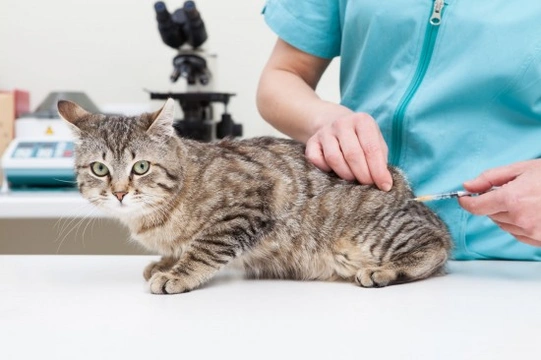
What Vaccinations Should My Cat Have?
If you are just about to get a kitten or an older cat you would need to know what vaccinations your new pet would need to have in order to ward off many of the infectious diseases that can affect our feline friends with devastating effects. With the fantastic leaps forward in veterinary medicine, science and vaccine technology together with the brilliant research that's been carried out into feline infectious diseases, vets these days are armed with much more information than they were say 15 years ago.
However, even with all the advancements in veterinary treatments and medicines, vets still have to face making certain decisions where vaccines and protocols on how to administer them are concerned and although there are certain vaccines your cat must have to stay healthy, there are others which your cat would only need to have should you be thinking about moving abroad on a permanent basis and would like to take your pet with you.
Vets have so much more information at their fingertips about cats and other animals which includes the following:
- Today vets know that a cat's immune systems is continually changing
- Changes in regional or local susceptibilities to many diseases are now recognised
- Cats today have longer life expectancies
- The system for storing a cat (and other pets) medical records are much more sophisticated which allows vets to keep better track of short, medium and long-term effects of vaccines and how they are used and administered
How Safe are the Vaccines?
However, there are other factors that may have a bearing on a vet's decision to vaccinate a cat with any particular vaccine which are as follows:
- Veterinary medicine is evolving with more research being carried out and as such vets have a better understanding of infectious diseases in felines
- Vets are more aware of the concerns regarding vaccine licensing and labelling
- Vets today are aware and take into the account the risks that may be associated with vaccines and any side effects they may have
Over recent years vets have come to understand there are certain risks where vaccinations are concerned but this needs to be weighed up carefully and then balanced against the significant role certain vaccines have played in preventing cats from developing serious infectious diseases and thus living longer and healthier lives in a world where microbial pathogens are rife.
Not All Vaccines Are Suitable
Cats in the UK do not have to have certain vaccines which includes rabies because luckily this serious disease doesn't exist on our shores. However, other vaccinations should be given to cats as soon as they are old enough to have them which includes the following:
- Feline leukaemia virus (FeLV)
- Feline chlamydiosis
- Feline Infectious enteritis (FIE)
- Feline calicivirus (FCV)
Vets would want to vaccinate kittens with these vaccines as a single combination dose which is typically given to them in two goes 3 to 4 weeks apart. Kittens would need to be vaccinated when they are anything between 6 to 16 weeks old. However, if the first injection is administered after the age of 16 weeks the second vaccination would need to be given to them three to four weeks later. Kittens would then need a booster one year later and then every three years thereafter.
Rescued cats will automatically be given a thorough examination and they will be tested for any diseases to find out if they are infected or if they may be carriers. All rescued cats are routinely vaccinated so that when they are re-homed, all you have to do is make certain their boosters are kept up to date which would be the following year and then every three years after that.
Keeping Boosters up to Date
It is crucial for cat owners to keep their pets boosters up to date so they have the peace of mind they will remain healthy and be able to find off any nasty microbial pathogens which might attack their immune systems, organs or cause a neurological illness that could well prove to be fatal.
Are You Moving Abroad & Taking Your Cat?
If you are moving abroad and to a country where rabies is an issue, then you would need to talk to your vet to see if you would need to have your pet vaccinated against this terrible and fatal disease. Your cat will have to be micro-chipped before you can have them vaccinated against rabies and the vaccination would need to be administered at least 30 days before your departure date.
However, you would also need to find out if any other vaccinations should be administered to your pet but this does depend on which country you are moving to because as previously mentioned there are feline vaccines that deal with specific local and regional illnesses and diseases which are not found in the UK but in certain other areas of the world.
Conclusion
Having your cat vaccinated against infectious and often fatal diseases is essential and it is one of the most important veterinary services that a vet offers you. Although these procedures are considered as being routine they should never be taken for granted. By taking your cat for their boosters every three years, it offers your vet the perfect opportunity to give a cat the once over to make sure they are healthy and that nothing untoward is going on which could be a health concern.



